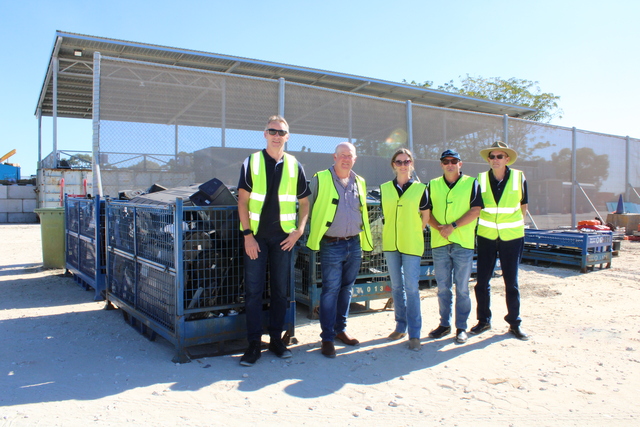Located between Sydney and Brisbane in the New England Plateau, Armidale Dumaresq Council has a population of 24,500 people and a staff base of 250 employees. In 2007, a Council survey ascertained that leadership across eight out of nine council areas was perceived as negative.
Staff were generally lacking confidence in their managers and supervisors and often had a distrust in anyone but their immediate group, team or peers. As such, Council wanted to develop a stronger leadership culture.
Manager Human Resources Michael McGrath said that in the past, results of surveys such as these were given directly to managers and they were asked to improve.
“We had also tried training, but neither approach seemed to make a real difference,” he said.
“We reviewed these past approaches and recognised that a short term ‘fix’ was not appropriate, nor cost effective, and that ‘coaching’ would be the way forward.”
Council looked to England’s Leicester City Council as an example of how coaching could be implemented.
With 15,000 staff and 54 councillors, Leicester ran a group coaching program with a selection of managers in 2005.
Half of the participants felt their productivity increased by a weekly average of four hours, and the other half significantly improved their work/life balance by reducing their weekly ‘overtime’ by between four and 15 hours.
The key finding was that all managers said they were using new behaviours significantly in the workplace 30 to 50 per cent of the time.
Using these results as inspiration, Armidale Dumaresq set a goal of embracing the ‘Manager as Coach’ culture across council over a two to three year period.
Council engaged Norm Turkington, a consultant psychologist with the Local Government and Shires Association NSW Learning Solutions, to assist with initial coaching and implementation of the initiative.
Michael McGrath said that 15 months later, and 40 per cent of the organisation’s managers are acting as skilled coaches, having identified their own managerial gaps using skill specific 360 degree reviews.
“360 degree feedback is a process of identifying what should be and what is occurring,” he said. “It also identifies satisfaction with and the importance of skills from the rater’s perspective.
“This differs from typical management techniques, where staff are told what to do, but not given any real feedback or opportunities to discuss their technique if improvement is needed.”
The coaching sessions were then focused on developing each manager’s skill development areas. Initially, managers who were identified to become coaches were trained over six months by Norm Turkington. After improving their skills, those managers were then taught how to coach others, and further managers were invited to participate in the program. This process will continue to be duplicated to ensure that all managers eventually become coaches.
Michael McGrath said that key elements to the coaching model are introducing problems to staff in a non threatening way and using questions to clarify problems.
“It is important to firstly establish and clarify a desired solution, seek ideas, listen, and then check the staff members’ understanding, offer suggestions and build on the solution together. Underlying the success of all of this is to ensure there is a followup and debrief.”
Michael McGrath said that as a result of this new workplace culture, Council has seen improvements in:
- communication with all staff
- management skills – leading, planning, organising, controlling
- listening – actively and for specific information
- working with staff – both in own team and others
- team development – identified and initiated skill development
- ways to deal with different situations – reduced conflicts
- understanding of others’ working styles
- better relationships and understanding of other managers in
council.
He said staff also have a greater awareness of their own strengths and areas for development, areas of weaknesses and approaches for improvement, their own day to day management style and abilities, others’ styles and abilities, and personal and workplace values of self and others.
For further information contact Michael McGrath on
(02) 6770 3628.







